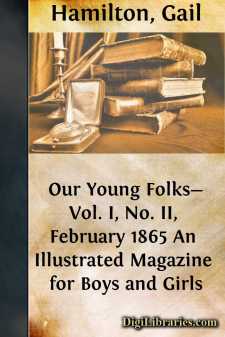Categories
- Antiques & Collectibles 13
- Architecture 36
- Art 48
- Bibles 22
- Biography & Autobiography 815
- Body, Mind & Spirit 144
- Business & Economics 28
- Children's Books 18
- Children's Fiction 14
- Computers 4
- Cooking 94
- Crafts & Hobbies 4
- Drama 346
- Education 58
- Family & Relationships 59
- Fiction 11829
- Games 19
- Gardening 17
- Health & Fitness 34
- History 1378
- House & Home 1
- Humor 147
- Juvenile Fiction 1873
- Juvenile Nonfiction 202
- Language Arts & Disciplines 89
- Law 16
- Literary Collections 686
- Literary Criticism 179
- Mathematics 13
- Medical 41
- Music 40
- Nature 179
- Non-Classifiable 1768
- Performing Arts 7
- Periodicals 1453
- Philosophy 65
- Photography 2
- Poetry 896
- Political Science 203
- Psychology 44
- Reference 154
- Religion 515
- Science 126
- Self-Help 85
- Social Science 82
- Sports & Recreation 34
- Study Aids 3
- Technology & Engineering 59
- Transportation 23
- Travel 463
- True Crime 29
Our website is made possible by displaying online advertisements to our visitors.
Please consider supporting us by disabling your ad blocker.
Our Young Folks-Vol. I, No. II, February 1865 An Illustrated Magazine for Boys and Girls
by: Gail Hamilton
Categories:
Description:
Excerpt
DAVID MATSON.
Who of my young friends have read the sorrowful story of “Enoch Arden,” so sweetly and simply told by the great English poet? It is the story of a man who went to sea, leaving behind a sweet young wife and little daughter. He was cast away on a desert island, where he remained several years, when he was discovered, and taken off by a passing vessel. Coming back to his native town, he found his wife married to an old playmate,—a good man, rich and honored, and with whom she was living happily. The poor man, unwilling to cause her pain and perplexity, resolved not to make himself known to her, and lived and died alone. The poem has reminded me of a very similar story of my own New England neighborhood, which I have often heard, and which I will try to tell, not in poetry, like Alfred Tennyson's, but in my own poor prose. I can assure my readers that in its main particulars it is a true tale.
One bright summer morning, more than threescore years ago, David Matson, with his young wife and his two healthy, barefooted boys, stood on the bank of the river near their dwelling. They were waiting there for Pelatiah Curtis to come round the Point with his wherry, and take the husband and father to the Port, a few miles below. The Lively Turtle was about to sail on a voyage to Spain, and David was to go in her as mate. They stood there in the level morning sunshine talking cheerfully; but had you been near enough, you could have seen tears in Anna Matson's blue eyes, for she loved her husband, and knew there was always danger on the sea. And David's bluff, cheery voice trembled a little now and then, for the honest sailor loved his snug home on the Merrimack, with the dear wife and her pretty boys. But presently the wherry came alongside, and David was just stepping into it, when he turned back to kiss his wife and children once more.
“In with you, man,” said Pelatiah Curtis. “There's no time for kissing and such fooleries when the tide serves.”
And so they parted. Anna and the boys went back to their home, and David to the Port, whence he sailed off in the Lively Turtle. And months passed, autumn followed the summer, and winter the autumn, and then spring came, and anon it was summer on the river-side, and he did not come back. And another year passed, and then the old sailors and fishermen shook their heads solemnly, and said that the Lively Turtle was a lost ship, and would never come back to port. And poor Anna had her bombazine gown dyed black, and her straw bonnet trimmed in mourning ribbons, and thenceforth she was known only as the Widow Matson.
And how was it all this time with David himself?
Now you must know that the Mohammedan people of Algiers and Tripoli, and Mogadore and Sallee, on the Barbary coast, had for a long time been in the habit of fitting out galleys and armed boats to seize upon the merchant-vessels of Christian nations, and make slaves of their crews and passengers, just as men calling themselves Christians in America were sending vessels to Africa to catch black slaves for their plantations. The Lively Turtle fell into the hands of one of these roving sea-robbers, and the crew were taken to Algiers, and sold in the market-place as slaves, poor David Matson among the rest.
When a boy he had learned the trade of a ship-carpenter with his father on the Merrimack; and now he was set at work in the dock-yards. His master, who was naturally a kind man, did not overwork him. He had daily his three loaves of bread, and when his clothing was worn out, its place was supplied by the coarse cloth of wool and camel's hair woven by the Berber women. Three hours before sunset he was released from work, and Friday, which is the Mohammedan Sabbath, was a day of entire rest. Once a year, at the season called Ramadan, he was left at leisure for a whole week. So time went on,—days, weeks, months, and years. His dark hair became gray. He still dreamed of his old home on the Merrimack, and of his good Anna and the boys. He wondered whether they yet lived, what they thought of him, and what they were doing. The hope of ever seeing them again grew fainter and fainter, and at last nearly died out; and he resigned himself to his fate as a slave for life.
But one day a handsome middle-aged gentleman, in the dress of one of his own countrymen, attended by a great officer of the Dey, entered the ship-yard, and called up before him the American captives....




